Malapascua is one of the smallest inhabited islands in the Philippines. It measures 2.5 on its longest side and 1 kilometer on its shorter span. Being a cleaning station for thresher sharks and manta rays and a home to diverse coral species, Malapascua became a famous dive site. The island is also a host to multiple white-sand beaches and interesting rock formations.
Malapascua, by the way, floats 6.8 kilometers northeast of Cebu island.
I’ve been receiving recommendations to see Malapascua since I moved to Cebu. Hence, when I finally got a chance, I boarded a bus off to Maya port, where Malapascua-bound boats are waiting to convey passengers.
The trip was completely random. I decided to visit the island one Friday night, and then I was on the island immediately the morning after that. Like most of my trips, I traveled alone. It’s really hard to drag someone else on random trip, anyway.
Malapascua After Typhoon Haiyan
I heard that the island suffered a large-scale devastation when Typhoon Haiyan struck the Visayas, but I couldn’t see any traces of it along Bounty beach and the community nearby. Life seemed normal. The locals worked on either tourism or fishing sector.
Classy hotels dot the shore, priced restaurants line along the beach, and dive tours are offered at almost every corner.
When I walked inwards, I noticed no pave roads. The streets are so narrow that no car could fit. Public transport is serviced by habal-habal or motorcycle taxi. However, you can walk the entire stretch of the island in less than an hour. Believe me, I tried it!
Freshwater come from the deep well. Some are comfortable drinking it, while others need to travel to Daanbantayan in Cebu mainland to buy potable water.
Locals live in wooden houses, though few had able to afford concrete.
After a short walk, I meet Kuya Jun. He offered me the island hoping tour. I was alone, so I was hesitant. I was worried about the fee. When we agreed an acceptable price, I gave it a go.
It was only then I realized that the community below the waters of Malapascua were the most affected by the typhoon after my talk with Kuya Jun. Corals were flushed away, and so with the fishes living in them. Recovery isn’t that obvious at first look. When you dive closer, however, you can see signs of life sprouting out.
Malapascua Sunset
In the afternoon, when the sun’s heat no longer pains, children gather on its stunning beachfront to play. They witness such awesome sunset everyday, and for them, it’s just ordinary. But for me, it’s phenomenal. I am always amazed, though I grew in a village facing the sunset.
The island is powered with a generator set where most of the consumption go to the hotel operators. The street lights in tourist areas are battery-powered and charged using solar panels on top of each posts. The residential areas are dark at night, it seems that the solar-powered lamp posts did not reach the inner section of the island.
Before the bright sunrise, fishermen cast their nets and rods on the shallow sea. A bounty catch would mean a feast.
If you want to witness the beauty of Malapascua with your own eyes, the guide below may be useful to you.
How to Get to Malapascua
From any point of the world, take a flight to Cebu [CEB]. Flights to Cebu City are available from Osaka, Tokyo, Busan, Seoul, Singapore, Xiamen, Taipei, Dubai, Hong Kong, and Kuala Lumpur.
You may also opt to fly to Manila, wherein there are more international flights available, and then transfer to a flight to Cebu.
If you are already within the Philippines, commercial flights to Cebu are also available from Clark, Legazpi, Caticlan (Boracay), Puerto Princesa, Kalibo, Iloilo, Davao, General Santos, Bacolod, Cagayan de Oro, Tacloban, Dumaguete, Pagadian, Siargao, Camiguin, and Butuan.
Ferries, such as TransAsia Shipping Lines, are also available from almost any point within the Visayas, northern Mindanao, southern Luzon, and even Manila.
From Cebu’s North Bus Terminal, hop on a bus (or passenger van) to Maya Port, Daanbantayan. The bus will take you directly to Barangay Maya’s newest seaport. The fare is ₱200.
From Maya port, board a passenger outrigger boat to Malapascua. There is a trip every 30 minutes from 06:00AM to 03:00PM. During peak season, this may extend to 04:30PM. Note that some schedule will be cancelled if the minimum 15 passenger requirement is not met. The fare is ₱100 per way. Students and elderly do have their own respective discounts.
If you are a big group and does not want to wait for other passengers, you can charter a boat for ₱1,500.
Follow the guide in reverse when you return from Malapascua to Cebu City, and then to your onward destination.
If you are coming from Bantayan Island, return to Hagnaya Port, and then hop on a bus to Bogo City. From Bogo bus terminal, transfer to another bus bound for Maya Port.
From Camotes Island, take a ferry to Danao, and then from the highway just outside Danao Port, hop on a bus to Maya port.
If you are coming from Carnaza Island, hop on an outrigger boat bound for Tapilon, and then take a tricycle or Bus to Maya Port. From there, you can transfer to another boat to Malapascua.
If you are coming from Kinatarcan Island, return to Daanbantayan, and then take a bus to Maya Port.
Where to stay in Malapascua
If you want your vacation to be laid-back and more pampering, you can choose from Malapascua’s premium destinations.
Hippocampus Beach and Dive Resort
Fronting Hippocampus is a stretch Malapascua’s famed Bounty beach. Rooms are of native design—made mostly of hardwood, nipa roofing, and bamboo—giving you full Filipino hospitality and experience.
Contact number: +63 917 869 1307
Malapascua Legend Water Sports and Resort
Also fronting Bounty beach, Malapascua Legend Water Sports and Resort offers every guests utmost comfort and great accessibility. The resort has a pool, a restaurant, and a dive center.
Contact number: +63 (32) 406 8384
Email: info@malapascualegend.com
Ocean Vida Resort
Sitting beside Malapascua Legend Water Sports and Resort is Ocean Vida Resort offering stunning beachfront accommodations with own terrace.
Contact number: +63 977 469 4840
Email: reservation@ocean-vida.com
Blue Corals Beach Resort
Blue Corals Beach Resort seats on the rocks at the western end of Bounty beach. The view is awesome, so with the beachfront.
Contact numbers: +63 917 627 2941 | +63 917 627 2935
Email: dedios.sonia@yahoo.com
Cocobana Beach Resort
Cocobana Beach Resort offers elegant-looking, air-conditioned native cabanas fronting bounty beach. The resort also offers trips to Kalanggaman Island and other dive tours.
Contact numbers: +63 915 920 0011 | +63 917 328 0029
If you are on a shoestring budget, the following option may fit.
Malapascua Budget Inn
Malapascua budget Inn is TripAdvisor’s number 1 hostel in Malapascua Island. Dorm rooms start at ₱400 per bed while a double room starts at ₱2,000. A/C are available in all room. JR, the hostel owner, is very accommodating and he can organize special trips for you.
Just note that the hostel usually go fully booked during summer. Make sure you have secured your accommodation in advance.
Online booking: www.exploremalapascua.com.ph
Contact number: +63 977 820 3111
Email: malapascuabudgetinn@gmail.com
Things to do in Malapascua
Klook.comDiving
Most guests travel to Malapascua to see the thresher sharks and its impressive underwater communities. Almost all premium hotels in Malapascua offers dive tours. They have in-house PADI-certified dive centers manned with competent divers and instructors.
For non-divers, you can do the following:
Island hopping
Island hopping in Malapascua has three stops, namely; Dakit-dakit, Coral Garden, and Japanese Shipwreck.
Dakit-dakit islet is a snorkeling site, however, it seemed that the strongest typhoon that struck the island in 2013 flushed away all the living marine creatures beneath it. There are signs of blooming life though, as the corals and fishes started to return and recover.
Coral Garden offers stunning underwater ecosystem. The area is protected and fishing is banned. Bantay-Dagat personnel regularly patrol the area.
The sunken Japanese ship could give you an eerie feel. Only the frame is visible, though. Fish and corals inhabit the wreck.
For the 360-degree island hopping tours, you may contact James or Jonas at +63 935 978 5636. Tour fee start at ₱350/head for a minimum of three in a group.
Kuya Jun, my boatman that time, asked ₱500 for the island tour. Unfortunately, he doesn’t have any number to share. You may look for him when you arrive in the island.
Cliff Diving
You can try cliff jumping if you have the guts. I’ve seen only locals doing the daredevil jump, mostly kids. My boatman discouraged me to because it was low tide and my weight could get me injuries. And so, I listened.
Sunset Watching
Anticipate a stunning sunset everyday. Standby at Bounty beach and witness how the sun beautifully disappears the horizon, changing the tint of the sky.
Engage with the locals
Always keep your ears wide open when you happen to sat down with locals. They tell interesting stories and some even have odd insights. Join them when they go fishing, asked questions, and make acquaintance for you to fully understand the island life.
Kalanggaman Island Day Tour
Kalanggaman Island is part of the things you can do in Malapascua, but you can join a day tour to the island off the coast of Palompon, Leyte. Travel time for one way is approximately 3 hours.
First publication: March 07, 2016

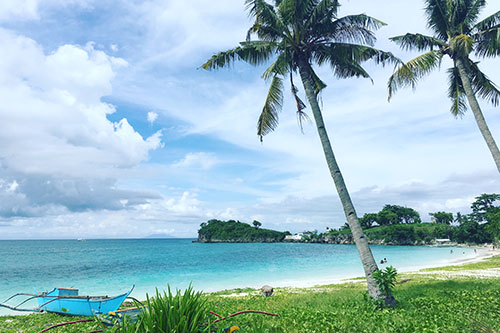
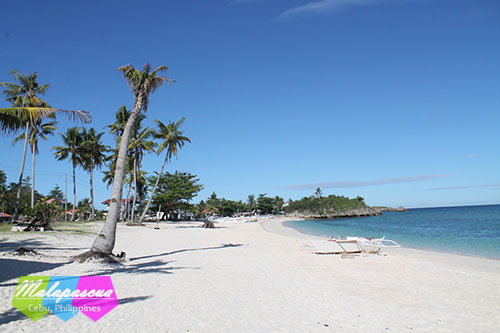
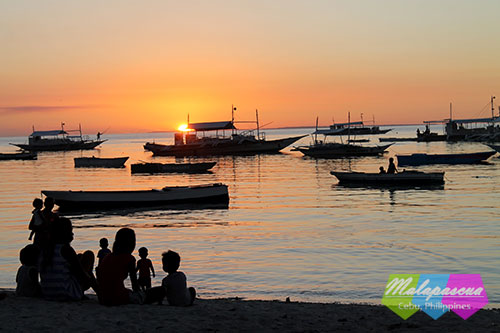
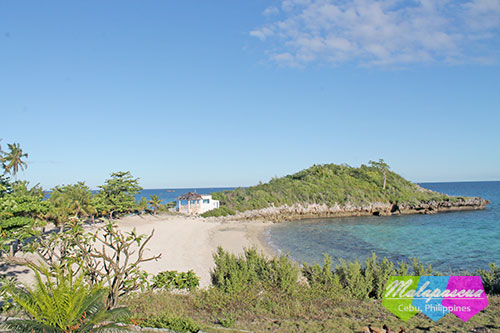
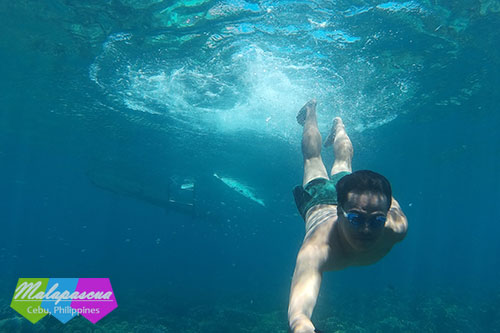
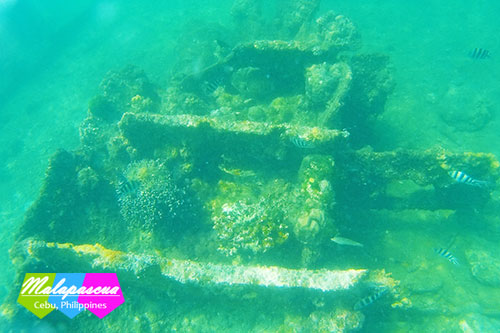
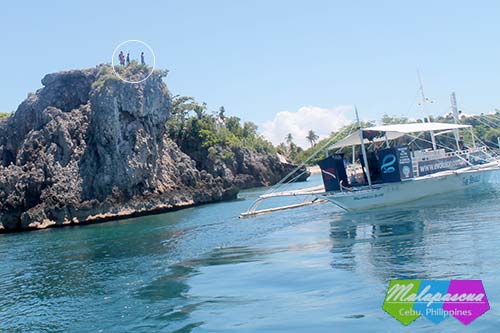
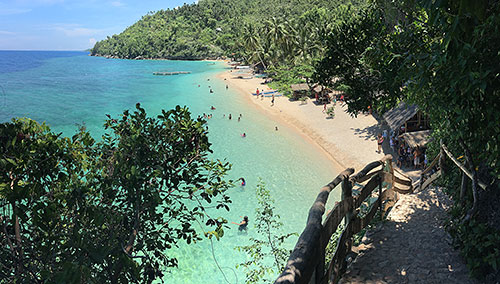
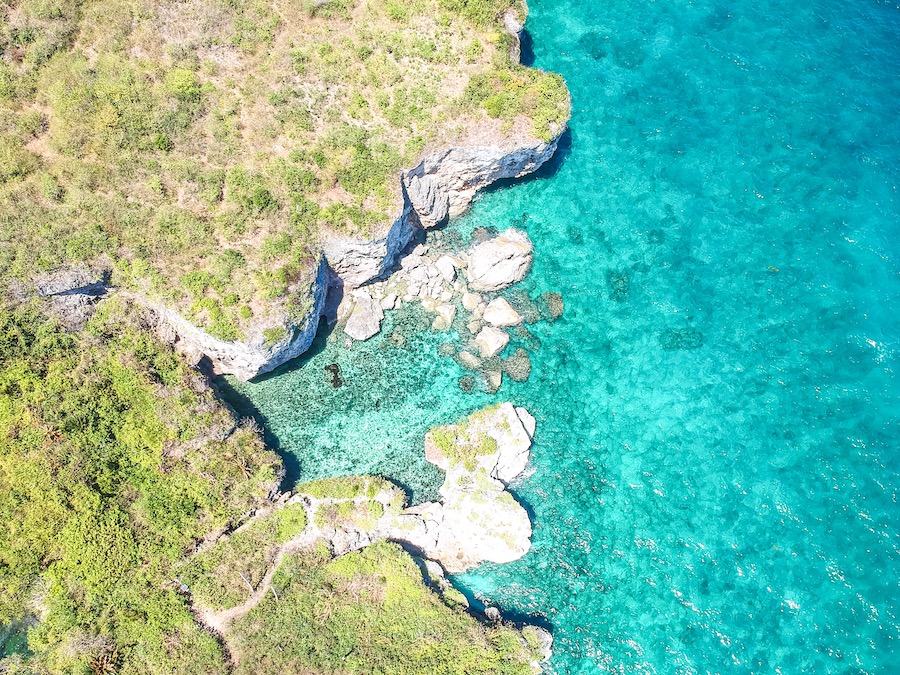
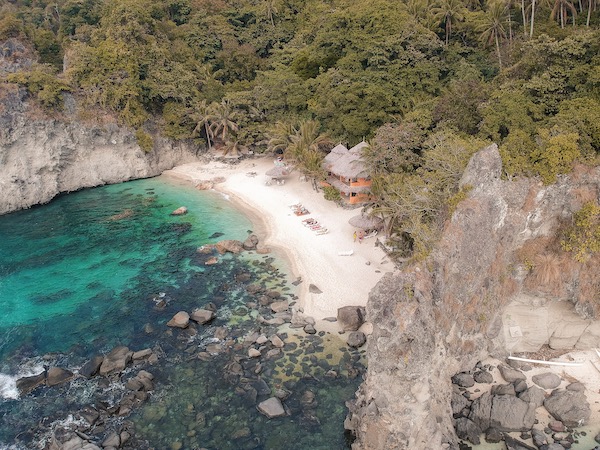
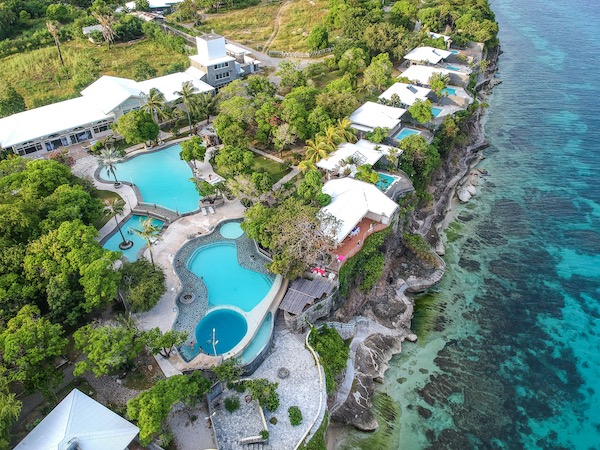
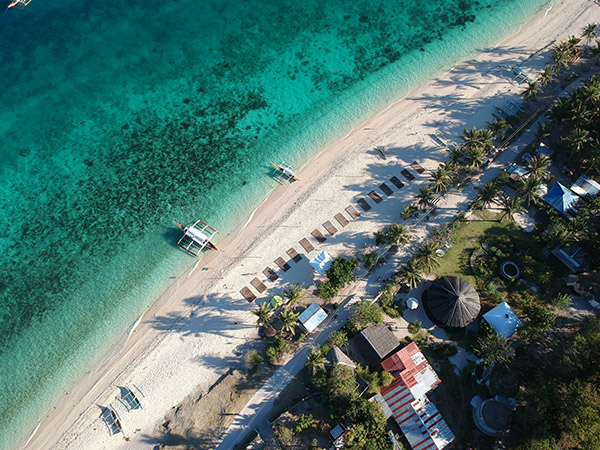
[…] Malapascua Island, on the other hand, may not be able to make the cut but is already an internationally recognized dive spot. It is a haven for deep sea scuba divers, especially those who wanted to see the thresher sharks swimming underneath its waters. […]
Malapascua is truly enticing. One of the gems of Northern Cebu. Have you also been to Camotes and Bantayan Islands? They are also prized islands of North Cebu.